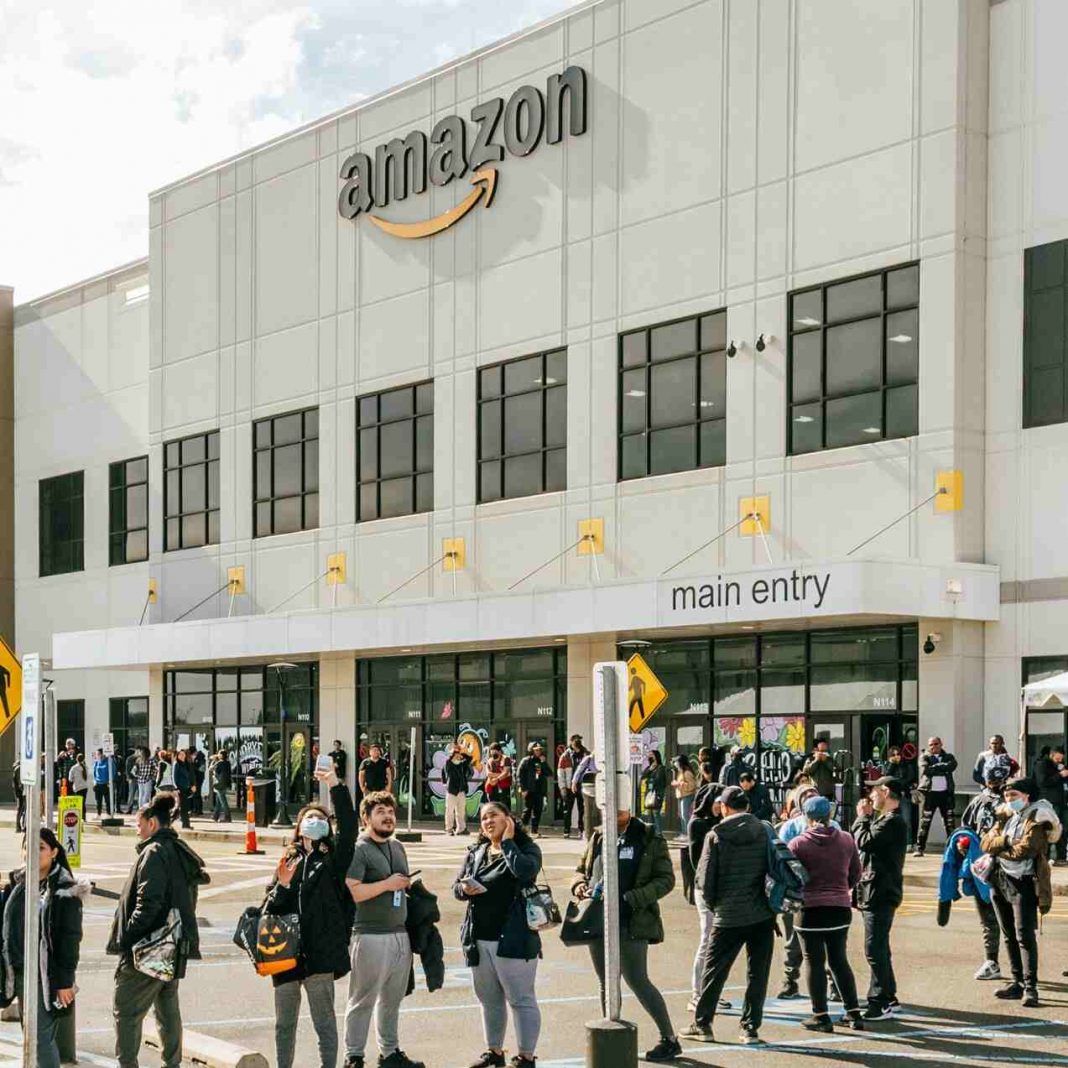A surprise union victory by Amazon employees at a massive warehouse on Staten Island was celebrated by the union’s leaders, sent shockwaves through the broader labour movement, and prompted politicians from across the country to rally in support of Amazon workers after the victory was announced last month. It now looks to have caused a rift inside the ranks of Amazon’s executive team as well.
According to four current and former Amazon workers with knowledge of the incident, who spoke on the condition of anonymity for fear of reprisal, the company told more than half a dozen top managers linked with the Staten Island warehouse that they were being fired on Thursday.
According to three persons who worked at the factory, the firings, which took place outside of the company’s normal employee review cycle, were seen as a retaliation to the Amazon Labor Union’s success in a strike at the site, they claimed. Workers at the warehouse overwhelmingly voted to create the company’s first union in the United States, marking one of the most significant triumphs for organised labour in at least a decade.
On Thursday, word of the reorganisation began to spread across the warehouse. In response to the unionisation campaign, several of the company’s management were in charge of putting the company’s reaction into action. According to their LinkedIn accounts, some of them were long-time employees of the organisation, with more than six years of experience.
Members of the union’s support base expressed concern about how lax the company’s health and safety protocols were, particularly as they related to Covid-19 and repetitive strain injuries. They also expressed concern about how the company pushed them too hard to meet performance targets, often at the expense of adequate breaks. Many people also complained that the salary at the warehouse, which begins at more than $18 per hour for full-time employees, was too low to support a family in New York City.
The corporation, according to an Amazon spokesperson, made the management changes after spending several weeks assessing various elements of “operations and leadership” at JFK8, which is the warehouse’s official name. As a part of Amazon’s culture of continuous improvement, “we feel it’s critical that we set aside time to evaluate whether or not we’re providing the greatest possible experience for our team,” said Kelly Nantel, a spokesperson for the company.
According to two sources, the managers were informed that they were being sacked as part of a “organisational shift.” One of the individuals said that several of the managers were high achievers who had lately earned favourable evaluations.
Currently, the Staten Island plant serves as Amazon’s only fulfilment centre in New York City, and current and former employees at the facility have been organising to join an upstart, independent union for more than a year.
A challenge to the election has been filed by the corporation, which claims that the union’s unusual methods were coercive and that the National Labor Relations Board was prejudiced in the union’s favour. In addition, the union is aiming to keep the pressure on Amazon so that company will enter into contract negotiations.
A Senate committee heard testimony from Christian Smalls, head of the Amazon Labor Union, on Thursday, as the committee considered whether corporations that break labour rules should be barred from receiving government contracts. Mr. Smalls then attended a White House meeting with other labour activists, during which he explicitly requested that Vice President Biden encourage Amazon to recognise his union’s right to collective bargaining.
A White House spokesperson said it was up to the National Labor Relations Board to certify the results of the recent election, but she reaffirmed that Vice President Biden has always supported collective bargaining and the ability of employees to form unions in his home state of Delaware.
Amazon has said that it would spend $300 million on safety initiatives alone in 2021, and that it will pay full-time employees above the minimum wage and offer them with comprehensive benefits such as health insurance as soon as they join the firm.
More than 8,000 workers at the warehouse were eligible to vote, and the union made a point of reaching out to employees from a variety of ethnic backgrounds, including African Americans, Latinos, and immigrants from Africa and Asia, as well as those with a variety of political viewpoints, ranging from conservatives to progressives, during the election campaign.
In the run-up to the election, company executives and consultants had more than 20 mandated meetings every day with employees, in which they attempted to convince workers not to support the union. The authorities underlined the amount of money that the union would receive from them, as well as the uncertainty surrounding collective bargaining, which they said may result in employees being worse off as a result of the agreement.
Experts in the field of labour believe that such allegations are deceptive since it is very rare for employees to see their remuneration decrease as a consequence of the collective bargaining process.
Approximately one month after the union’s triumph at JFK8, Amazon employees at a smaller plant nearby voted by a large majority to oppose unionisation.
It was during this period that the ballots were cast that organised labour may have reached a tipping point. Despite the fact that union membership reached its lowest level in decades last year (approximately 10% of U.S. workers), petitions to hold union elections increased by more than 50% over the same period the previous year, according to the National Labor Relations Board, during the six months ending in March. According to current trends, the number of petitions is on track to reach its highest level in at least a decade.
Since December, employees at Starbucks have won first union votes in more than 50 locations throughout the country, while workers at other firms that did not previously have unions, such as Apple and outdoor gear retailer REI, have joined or tried to organise.

